Pingyao Film Festival 2017: Year Zero of Jia Zhang-ke’s independent film festival
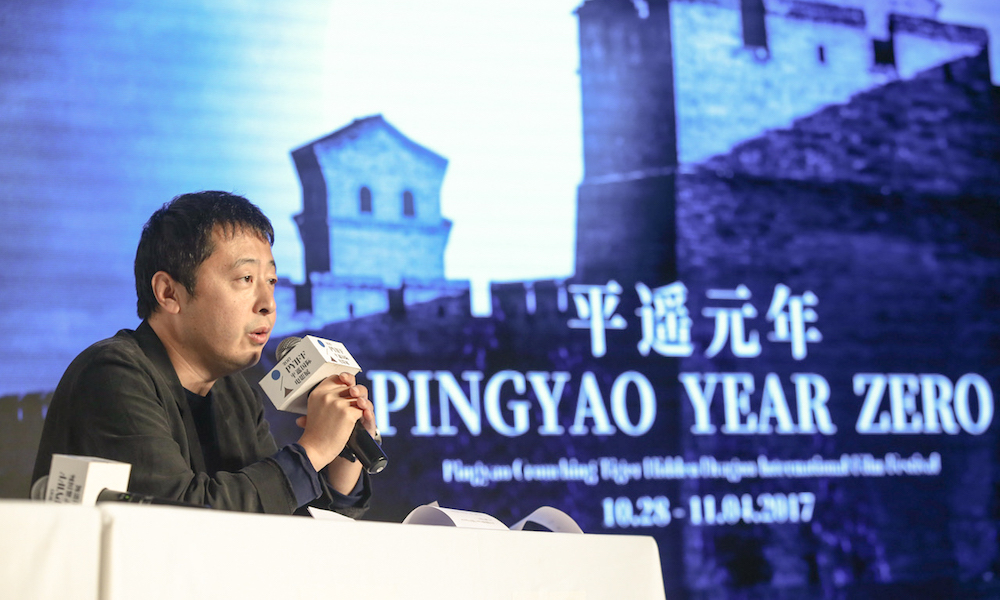
Last week was the first edition of the Pingyao Crouching Tiger Hidden Dragon Film Festival. The brainchild of world-renowned Chinese film director Jia Zhang-ke, the event fulfilled a lifelong dream of his to bring an auteur’s festival to provincial China where he grew up. Collaborating with Marco Müller, whose accomplishments include time spent at the helm of prestigious festivals from Venice to Locarno, and playing a pivotal role in showcasing Asian cinema at such events, Zhang-ke was able to realise his ambitious vision: Pingyao Year Zero brought a carefully curated selection of films from new and established independent filmmakers, from East and West, to hundreds of festival-goers at a stunning re-purposed factory in the old town of Pingyao in Shanxi province. We had the pleasure of being immersed in the unique festival experience for a week, staying in the heart of the 2,700-year-old ancient walled city of Pingyao, a stone’s throw from the Festival Palace, while taking in a selection of screenings, meeting the festival’s co-founders, directors of the films being showcased and punters, as well as visiting historical sites little-trod by international visitors.
After spending decades touring international festivals with his particular brand of Chinese cinema, rooted in inspiration he took from growing up in Shanxi, Zhang-ke was determined to bring film “home”. Set in a unique location a far remove from the bustle of super-cities Beijing and Shanghai, and the increasingly commercial European film scene, the festival aimed to spark a dialogue between Western and non-Western films and filmmakers, industry representatives and journalists, and, crucially, formed just one part of Jia Zhang-ke’s broader vision of nurturing the next generation of Chinese filmmakers in an international context, providing for them what he never had himself.
Indeed, creating a platform for young filmmakers was the primary motivation for his new project: “Four years in a row, over 700 films have been produced in China,” he told us. “Some are from young filmmakers, but their talents are not really shown or known to the audience. They need a bigger platform.” He also suggested that, despite changes in the way we watch films, particularly the explosion of online content, nowadays audiences, in fact, have too many choices: “They tend to choose Hollywood or European films. But there are many others – from Africa, South America, Eastern Europe – I also wanted to introduce these to the audience and show you can have other types of film.”
Speaking with Müller (full interview here), he explained to us that while the festival was Zhang-ke’s “invention”, he was drawn to the project by his own desire to break up what he sees as an increasingly stale film festival culture and industry, both in China and abroad: “The whole idea for us was to try and help him fulfil his dreams. But at the same time, by fulfilling his dreams, I could also fulfil my dream of creating a filmmakers film festival in this country. My past experiences have been of complete separation between the people who make the films and people who come and see the films.”
The festival
Unfolding over ten days, and borrowing its name from the acclaimed Ang Lee movie Crouching Tiger, Hidden Dragon, the eclectic programme, covering 18 nationalities, included sections dedicated to the discovery of new directors and films – the festival’s Crouching Tigers – genre films representing the latest cinematic trends – the Hidden Dragons – as well as standout movie’s from 2017’s major international film festivals giving their Asian premiere in Pingyao. The line-up also included a Centennial Retrospective of the godfather of French crime film, Jean-Pierre Melville, marking the 100th anniversary of his birth, with the screening of a selection of his restored films. Dubbed Pingyao Year Zero, the festival’s inaugural year was seen as an opportunity for the new boutique festival to find its feet, settling into its brand new purpose-created venue transformed over a matter of months from a disused factory into a breathtaking complex featuring screening rooms, an open-air theatre, a banquet hall, an exhibition hall and the press centre, with enough cavernous ceilings and open brickwork to have even the most cynical of East Londoners salivating.
The films
Highlights included a spectacular opening night ceremony in the festival’s chilly but beautiful 1,500-capacity open-air theatre, which treated guests to a range of performances from traditional dance and storytelling troupes to contemporary pop artists including Zhou Bichang and He Jie, plus speeches and presentations from the festival founders and the talented actress and festival ambassador Fan Bingbing. Acclaimed Chinese-born Hong Kong director John Woo (Broken Arrow, Face/Off, Mission Impossible: 2) was awarded Honorary Award for Significant Contribution on Culture Exchange Between the East and West, while director Feng Xiaogang made an appearance ahead of his coming-of-age film Youth opening the festival.
Other films screened ranged from Swedish satirical drama and Cannes Golden Palm winner The Square from Ruben Östlund, Richard Linklater’s Last Flag Flying to Takeshi Kitano’s Outrage Coda. Li Chen’s Sky Hunter, starring festival ambassador Fan Bingbing, was shown plus omnibus film Where Has Time Gone, the first film collaboration by BRICS countries with Jia Zhang-ke directing the Chinese portion filmed entirely in Pingyao. Argentinian director Santiago Esteves brought his twist on a cop-thriller Rey’s Education, from Austrian director Ruth Mader we saw Life Guidance playing alongside a selection from new generation Asian filmmakers such as Lai Kuo-An’s Fish Out of Water, and Zhou Quan’s feature debut, End of Summer.
The awards
Toward the closing, a special Pingyao Night returned us to the open-air theatre to see the three jury panels award selected films, particularly celebrating the work of female directors screened, including the Roberto Rossellini jury awarding Best Film to Elisaveta Stishova for Suleiman Mountain and Best Director to Chloé Zhao for The Rider. Among the Chinese Language films, Vivian Qu was awarded Best Film for Angels Wear White by the Fei Mu jury and Liu Jian Best Director for Have a Nice Day. Reflecting on their choices, Stishova’s film set in Kyrgyzstan was praised for its “real fascination for its incredible two women characters” and “true depth and emotion” as well as “its deep belief in the power of cinema”, Zhao’s The Rider was highlighted for her ability to “thoroughly observe the small details of life” and noted that “although she is not an American, she is not a part of the culture, but she really gave us a very detailed authentic picture of their lives”. Qu’s film was highlighted for the “subtlety and strength of the directing” and “intelligence in the way the film does address problems which have a Chinese specificity but are universal”. The Popular (People’s Choice) Award also picked out from the Gala films Aida Begic’s Never Leave Me and Peng Xiaolian’s Please Remember Me, and Ana Urushadze’s Scary Mother from the selection of films from international festivals. Ficarra & Picone’s L’Ora Legale and Peng Fei’s The Taste of Rice Flower were also noted in their categories while The Pig Butcher director Wang Yitong received the Wing Project award with funding toward his next film.
Pingyao
While not cuddled up in screening rooms, or sitting down to dissect film with directors, we were also able to explore Zhang-ke’s hometown Fenyang, which formed the site and inspiration for many of his films from his underground beginnings with Platform to internationally recognised success with Golden Lion-awarded Still Life. There, in parallel to his festival project in Pingyao, he is developing a cultural centre at a disused industrial site and also has a beautiful restaurant named after his film Mountains May Depart where we were served up culinary delicacies unique to the area, including the dumplings that feature in the film, in a feast fit for a king. We also experienced immersive theatre at Youjian Theatre, toured Zhangbi Castle, Shaunglin Temple and Ma Grand’s Family Compound and visited the site of Zhang Yimou’s film Raise the Red Lantern, providing a privileged insight into the history that informs the region, and the cultural setting that inspired Zhang-ke as a filmmaker. Our traditional family-compound-converted hotel, Yun Ding Xuan, complete with period features of stone-based beds, carved woodwork, courtyards and balconies, and the best local cuisine – and Báijiǔ, China’s dangerously strong white liquor – in the old town, completed an utterly otherworldly submersion in the sights, sounds and tastes unique to the ancient city.
Overall, Pingyao Year Zero marked not only the masterful execution of a personal vision but a fresh interpretation of the international film festival, one that will no doubt mature into an important platform to nurture creativity, foster dialogue and support excellence in both Western and non-Western independent film for the benefit of audiences and filmmakers in generations to come.
Sarah Bradbury
Pingyao Crouching Tiger Hidden Dragon Film Festival took place in Pingyao (China) from 28th October until 4th November. For further information visit their website here.
Watch the artwork trailer for the Pingyao International Film Festival here:

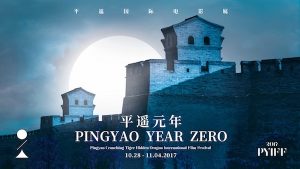

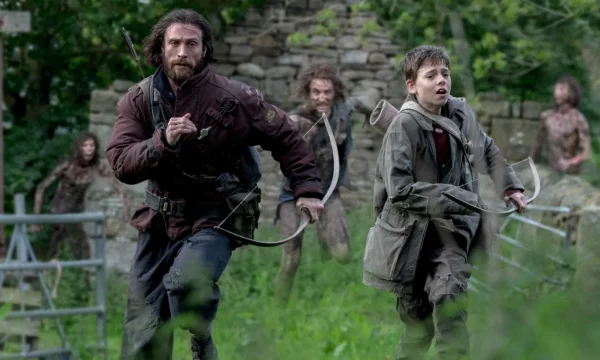





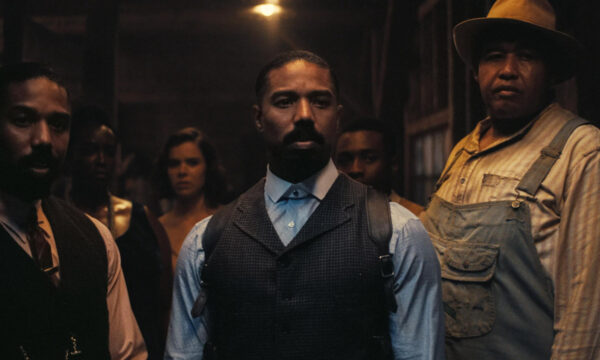
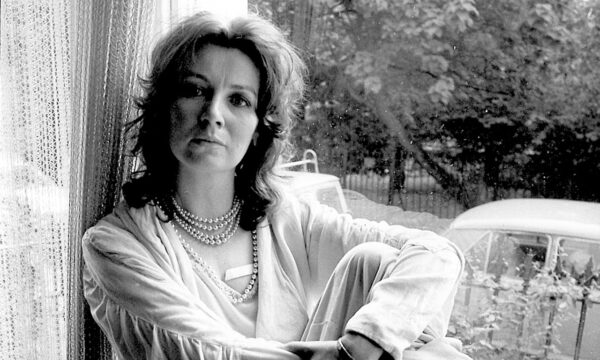
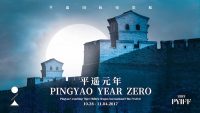














Facebook
Twitter
Instagram
YouTube
RSS